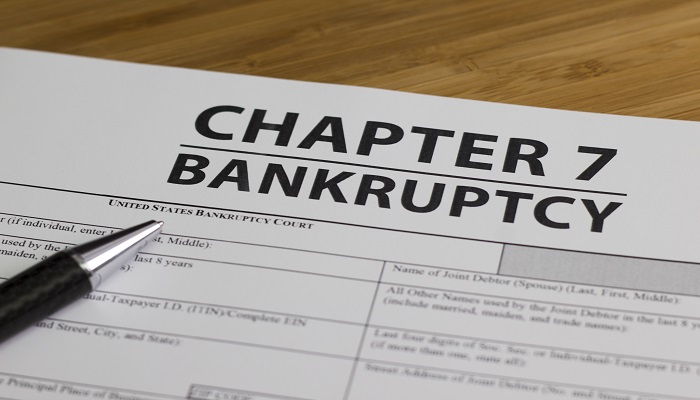
Chapter 7 bankruptcy is the most commonly preferred type of bankruptcy for most taxpayers as it is a fast process and taxpayers do not need to pay back any debts they owe to the IRS. It takes about four to six month to process from the date of filing a chapter 7 bankruptcy. As of December 2020, the cost of filing was $330, and you usually need to visit the courthouse only once to file and get it processed.
Who Can File Chapter 7 Bankruptcy?
Not everyone is eligible for a chapter 7 bankruptcy discharge. If your gross income is less than the median income of your state, you will qualify for the discharge. If the gross income is higher, you may qualify if there is not enough left over to complete a chapter 13 repayment plan after you pay all allowed monthly debts. If you have received any type of bankruptcy discharge in the last six to eight years, you cannot file for chapter 7 bankruptcy.
Related Blog Post: Answering Commonly Asked Questions about IRS Penalty Abatement
Impact of Chapter 7 Bankruptcy on Tax Liens
A federal tax lien is a claim by the IRS against a specific property when a taxpayer fails to pay outstanding taxes. If you are the subject of a federal tax lien from the IRS and you file for Chapter 7 bankruptcy, it triggers a statutory protection known as an automatic stay. It bars the IRS from taking any collection action for most debts and filing a tax lien after the bankruptcy. If, however, a lien was filed by the IRS before the bankruptcy, it will stay in effect.
How to Pay Off Tax Liens through Bankruptcy
Filing for bankruptcy helps taxpayers pay tax liens in whole or in part. Once you file for Chapter 7, a bankruptcy trustee is appointed to liquidate the assets that are mentioned in the bankruptcy estate. This helps raise money to pay outstanding taxes. The IRS can claim the money raised through the sale of property that is covered by a federal tax lien.
Related Blog Post: All You Need To Know About The Innocent Spouse Tax Provision
What If Tax Lien is Not Paid Off through Bankruptcy
Unfortunately, you may not be able to pay off your taxes through Chapter 7. In most Chapter 7 cases, there are assets to liquidate and the tax lien will continue to be in effect on the property even after the Chapter 7 case is closed. You have the option to sell some property and pay the IRS and get the tax lien removed. You can also work out a payment plan such as installment agreement or an Offer in Compromise to pay the balance and have the tax lien released.
Wrap Up
Handling Bankruptcy and tax liens can be a tricky task that requires a great deal of knowledge and expertise. Any mistake in your paperwork can lead to further problems with the IRS. It is recommended to get professional tax lien assistance from an experienced tax attorney. If you are looking for tax lien help in Dallas and nearby areas, look no further. The experienced team of tax attorneys at The Law Offices of Nick Nemeth has a proven track record of helping clients in handling various IRS issues to get favorable outcomes. To speak to one of our IRS tax attorneys, call (972) 426-2553 or fill out our contact form, and we will take it from there.

